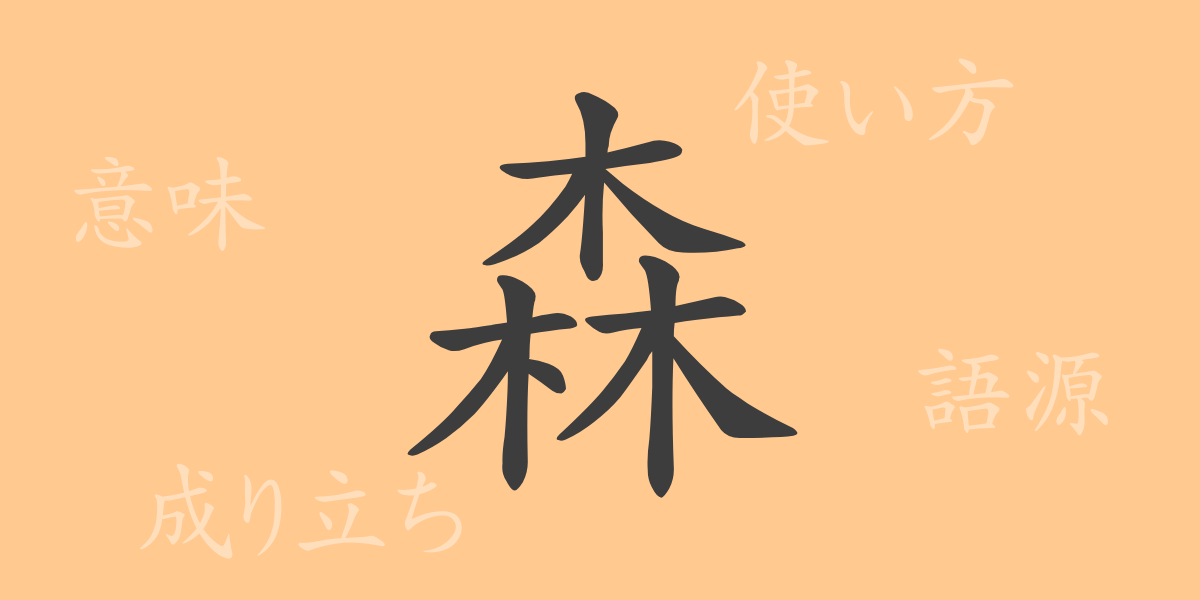The Kanji ‘森’ is deeply embedded in our lives, symbolizing the healing of forest bathing, the symbolism in literature, and an indispensable presence in Japanese landscapes. This article delves into the Kanji ‘森’, exploring its origins, meaning, usage, and its presence in idioms and proverbs, revealing the power held by this single character from various perspectives.
Origins of 森 (しん)
The origin of ‘森’ dates back to ancient times, where the character is formed by three instances of ‘木’ (き), symbolizing a collection of trees making up a forest. This representation embodies the abundance and vitality of nature. In ancient China, the superposition of three trees came to denote a forest, which was later adopted into Japanese usage.
Meaning and Usage of 森
‘森’ refers to a densely wooded area where many trees grow closely together. It is also used metaphorically to depict a rich gathering of elements, such as in ‘才能の森’ (a forest of talent), representing a place abundant in skills. Additionally, forests play crucial roles in conservation and as vital components of ecosystems.
Readings, Stroke Count, and Radical of 森
The Kanji ‘森’ has distinct readings and structural features.
- Readings: On’yomi ‘シン’, Kun’yomi ‘もり’
- Stroke Count: 12 strokes.
- Radical: The radical is ‘木’ (きへん), related to wood or trees.
Phrases, Idioms, and Proverbs Using 森
Many idioms, phrases, and proverbs incorporate ‘森’, reflecting the richness of nature and human relationships. For example, ‘森羅万象’ (しんらばんしょう) signifies all phenomena in the universe, and ‘一枚の絵’ suggests something seemingly simple yet profoundly deep. The proverb ‘木を見て森を見ず’, warns against missing the forest for the trees, focusing too much on details and missing the bigger picture.
Conclusion on 森
The Kanji ‘森’, as suggested by its formation, embodies diversity and complexity. As a symbol of nature and a cultural expression, it is deeply engraved in our language. Exploring the world of ‘森’ allows us to rediscover the beauty of Japanese, appreciating our reverence for nature and the sanctity of life.

























